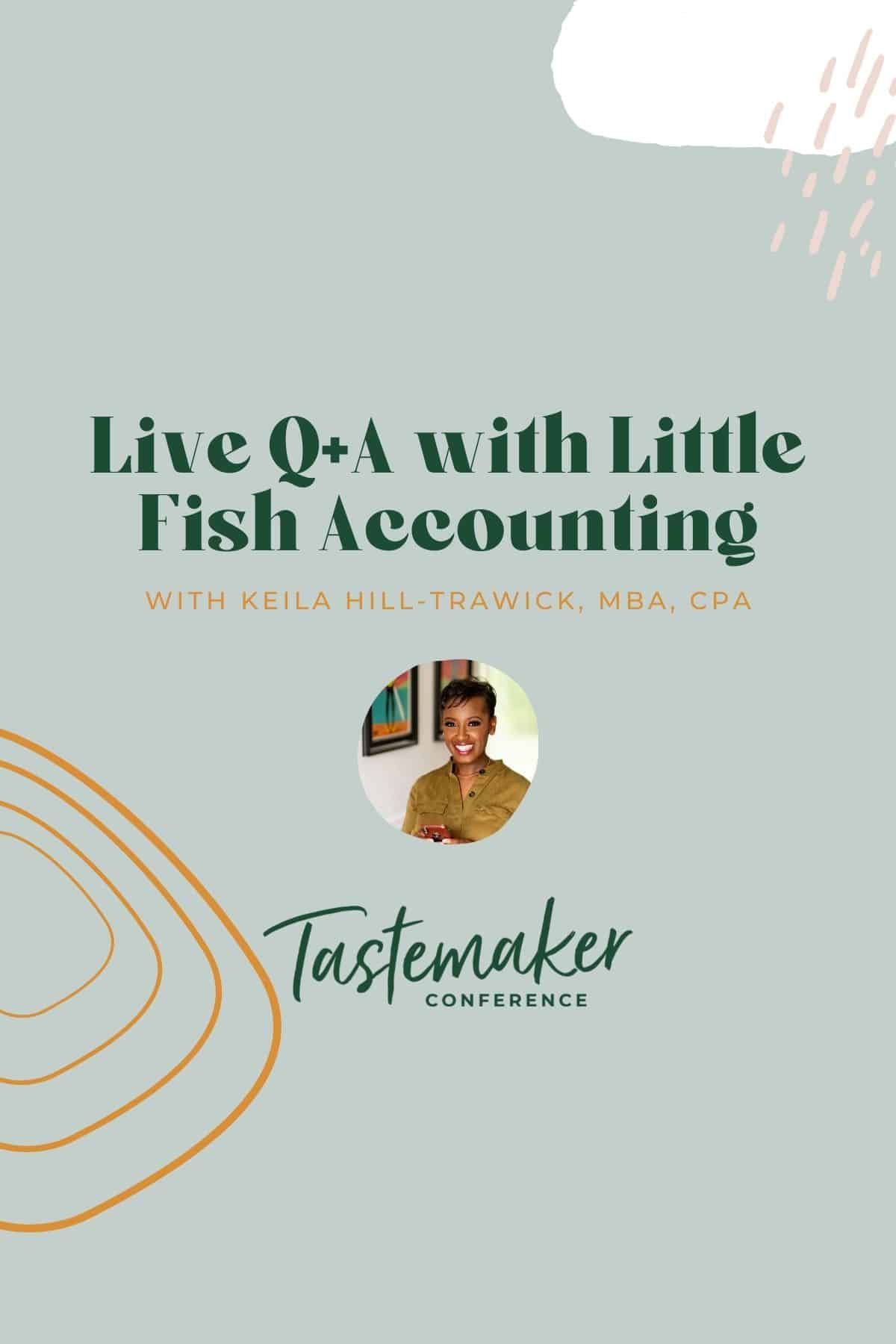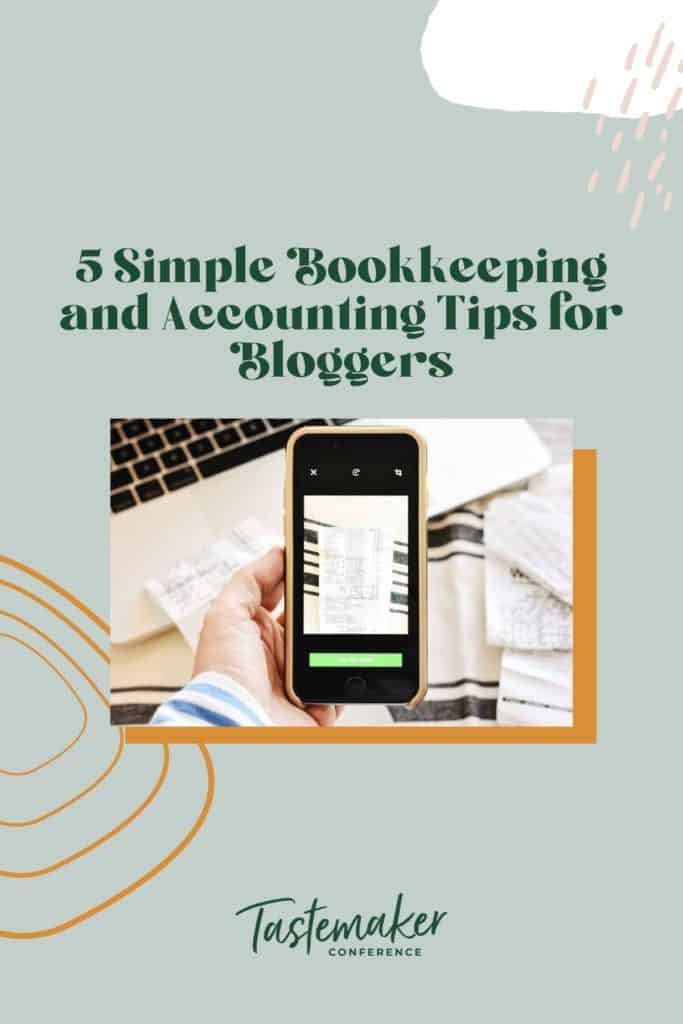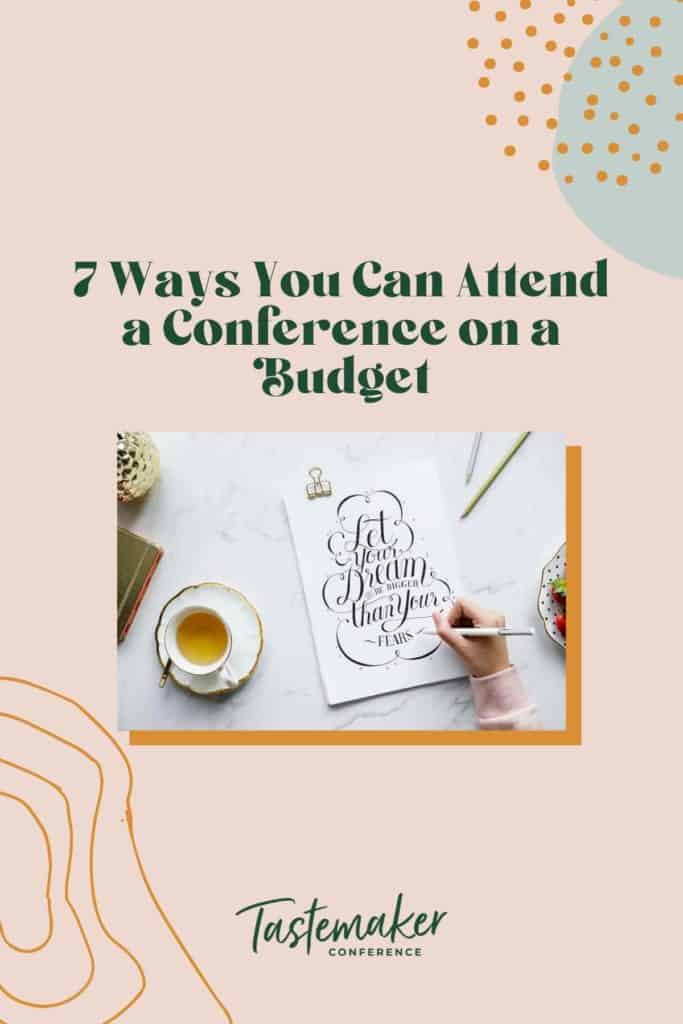We go over accounting questions as a content creator. Answering all your small business questions about taxes, banking accounts, deductions, and more.
Watch the Live Q&A with Keila Hill-Trawick, MBA, CPA to go over all your questions as a content creator about your finances, taxes, invoicing, and more. Answering all your small business questions about taxes, banking accounts, home offices, deductions, and more.
Watch the Replay
About Little Fish Accounting
About Little Fish Accounting: Our mission is to empower small business owners to have freedom in their business by properly managing their finances and providing strategic financial support in their growth. Their promise: EDUCATION – We promise to communicate with you on each step of the process. INTEGRITY – We promise to operate with integrity and to treat you with decency and respect. TRUST – We promise to provide exceptional strategic support and financial management.
About Keila: Keila Hill-Trawick is the Founder + Principal of Little Fish Accounting, a boutique CPA firm dedicated to the accounting and tax needs of service providers and small online business owners. Little Fish Accounting was born out of the desire to create a safe space for entrepreneurs that are often overlooked by larger accounting firms. After over a decade of experience in the government and private sector, she decided to apply her accounting expertise to advise small businesses in reaching their financial goals.
DISCLAIMER: I am an accountant, not your accountant. Please speak with a professional about your specific accounting and tax needs before putting any of the aforementioned tips into practice.
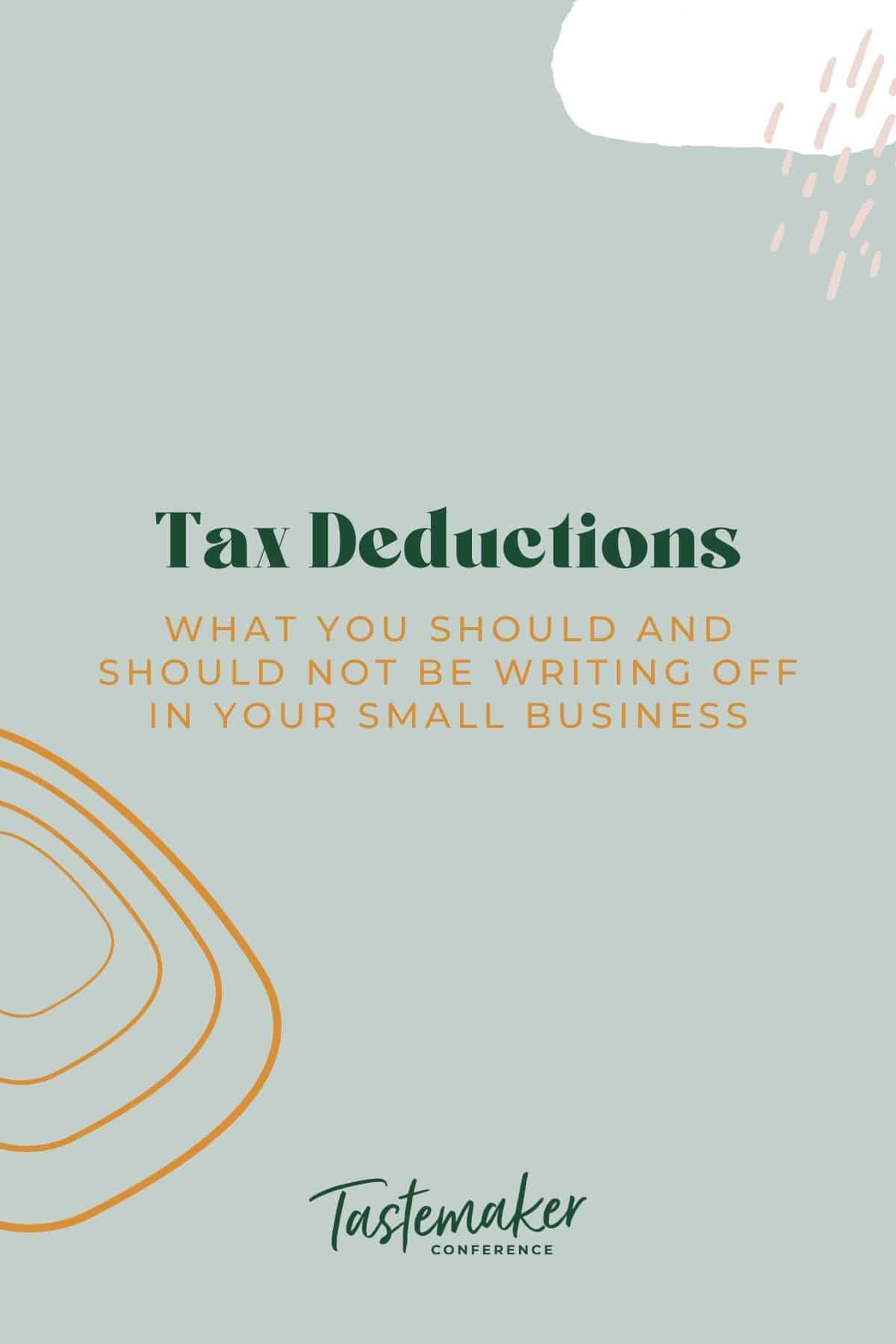
Q&A Highlights
Tax Deductions
What is the best business practice for expensing groceries to your business?
Separate your business from your personal bank accounts. Buy groceries with your business account card. And save all your receipts. If you buy both home and work on accident on one card, save the receipt and then make notes right then so you don’t forget what things you spent on home and business right away so you don’t forget.
Generally the IRS isn’t going to look for your receipts. You don’t need to give to your accountant (if you have one), but rather just hold onto those as a backup in case you do get audited.
Do you write off hair, makeup, clothing for YouTube videos, brand shoots, etc.?
Each situation depends, but generally no.
For clothes, no. Because usually those are clothes that can be worn elsewhere, not like coveralls for a specific job. There can be exceptions, so talk to your accountant. These would be like a gown you have to wear to an awards show, etc.
Hair products and makeup you buy yourself would be a no. However, if you hire a stylist and MUA for the day of a shoot, that could be included. Again, be sure to talk to your accountant and track those items.
What about home office expenses?
There are two rules!
- Needs to be the space regularly used for the business. When you are doing work for the business, you do it here.
- This space is being exclusively used for work and your home office. It can’t double as your dining room table, living room, or guest room.
Again, talk to your accountant if you’re confused.
Should I write off everything in my home office in the first year or should they be considered assets that you write off gradually each year?
For the most part, write it off all within the first year you bought it.
There are two types of buys. Direct expenses like a desk, chair, bookshelves, painting, etc. Then you have indirect expenses, like internet, utilities, rent, etc. These are the percentages of how big your space is in comparison to the rest of the home.
Can you deduct anything from your kitchen because you work there? As in a small home office?
No. Unless you have a specific storage or prep space that is just for your work and nothing personal goes there. You might be able to write that off.
Should I be worried about buying food or ingredients for work, but then using those items for personal use? Example: buying flour for work, but then using it for home as well.
This isn’t usually too big of a problem. You might want to separate them if you are using it for only household and barely for work. But if you bought a bag of flour, then used it on one or two home recipes, that’s okay. Think about your intention. Don’t get too caught up in it.
I’m not making money on my blog yet, how long can I write off deductions for it? Is this a hobby?
You can’t deduct items on hobbies, just businesses. So this is a business, not a hobby. It takes a long time to get up and running. So you need to just prove that you are a business and you are trying to become financially independent.
- Track everything you purchase and spend on. This shows them the type of items you’re buying to get to that place of earning. Like courses, website fees, etc.
- And you need proof of the fact that you are trying to earn. Pitches to brands, starting a website, trying to run a business. You do intend to get paid.
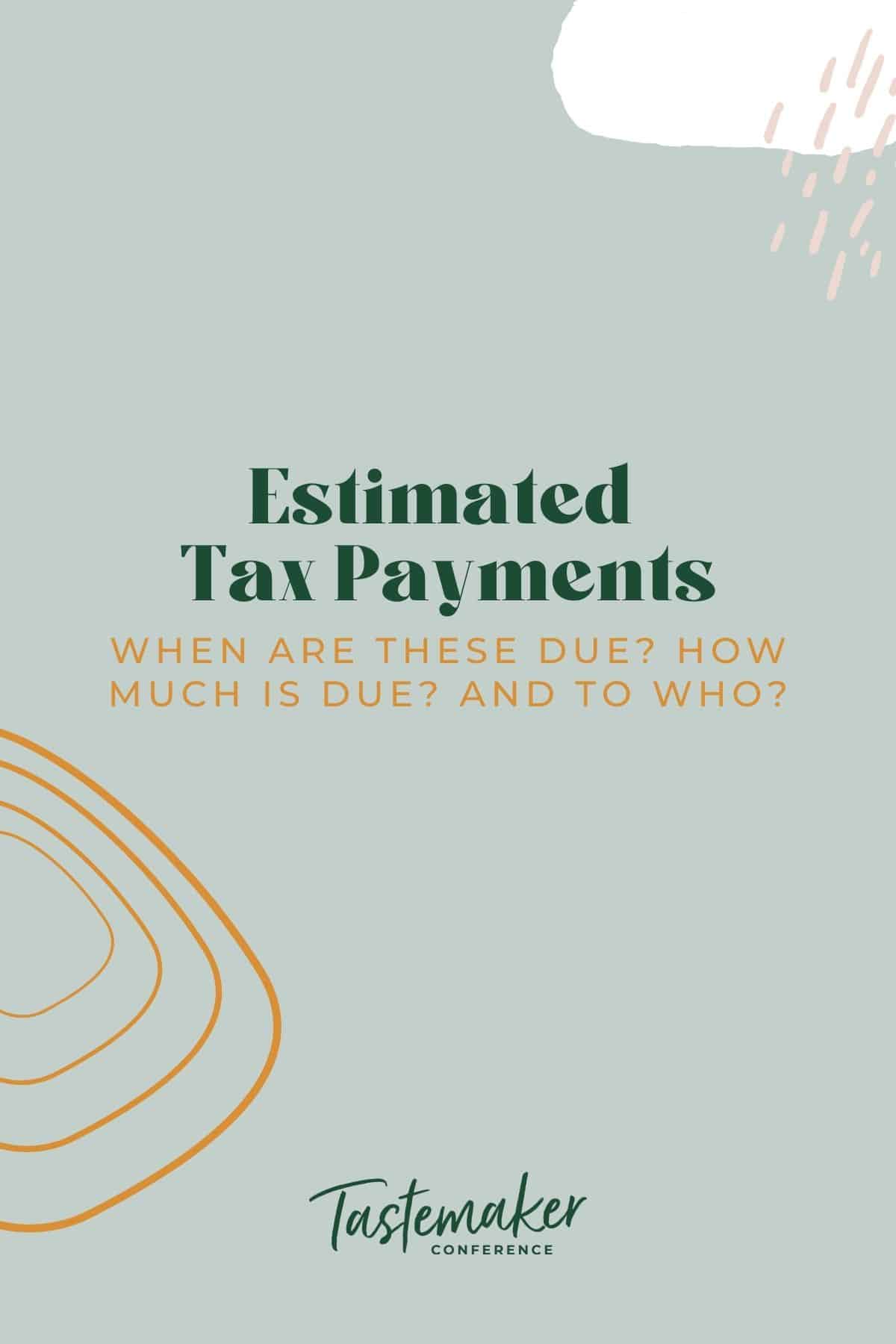
Estimated Tax Payments
How much should I be saving for each payment for taxes?
Note that you get taxed on your PROFIT, not your PAYMENT. If you made $100, but spent $60, you will be only taxed on the $40. So, if you are saving from each check/payment you are sent, you are most likely going to be oversaving. Which isn’t a bad thing, but something to be mindful of.
Generally, you want to save about 30% of your profits for tax purposes. You’ll pay those in some estimated payments, then by end of year taxes, review all of that and pay the remainder.
Make sure you are saving this 30% in a separate savings account for your business. This way you won’t accidentally spend them on work items.
How do you set up estimated payments on your own?
IRS and State do these separately. You can do these using the links below:
- Information for IRS: https://www.irs.gov/businesses/small-businesses-self-employed/estimated-taxes
- Pay here: https://www.irs.gov/payments
- State Payments: each one varies. Type into Google “state tax estimated payments” + the name of your state.
Set up accounts and pay these quarterly.
When do you pay estimated taxes?
Usually these follow the same calendar each year, but be sure to check the IRS and State websites.
January 15
April 15
June 15
September 15
You are covering all profits through the full three months before. So if you are making April’s payment, you are estimating taxes from your income from January through March.
Do you have to pay quarterly estimated taxes? Or can you just do it at the end of the year?
As a small business, the IRS says you have to do it quarterly. If you don’t, they will charge you a late fee. If you miss one of the deadlines, go ahead and add those taxes onto the next time you pay. For example, if you miss April, pay as much as you can (if not fully) for April and June in June. This will help you to not owe as much during tax season.
If you overpay estimated taxes because you forgot about expenses, etc. will the IRS take that into consideration when filing your taxes and give you a refund?
Yes! For taxes you put in all your income, then you put in your expenses. When you have a W2 they are taking out taxes for you, to estimate and make sure you don’t spend money that needs to be saved for taxes. With a business or self-employment, the estimated taxes do the same. You might end up owing money, or you might end up getting money back.
Note: It’s important to know that when accountants say “I can get you more money from your tax return”, that’s not factual. You will owe the state and IRS the same amount no matter who is doing your taxes.
The money you get back from the IRS is YOUR money, it’s a refund. It’s not free money or a gift. It’s your money. That you get back.
What do you do when you are waiting on a 1099 that you haven’t received from a company?
1099s are due at the end of January. But you might not get it until the beginning of February. 1099s are “snitch” documents. It’s just telling the IRS that you made that money. No matter what, you still have to record all the income you made. With or without the 1099.
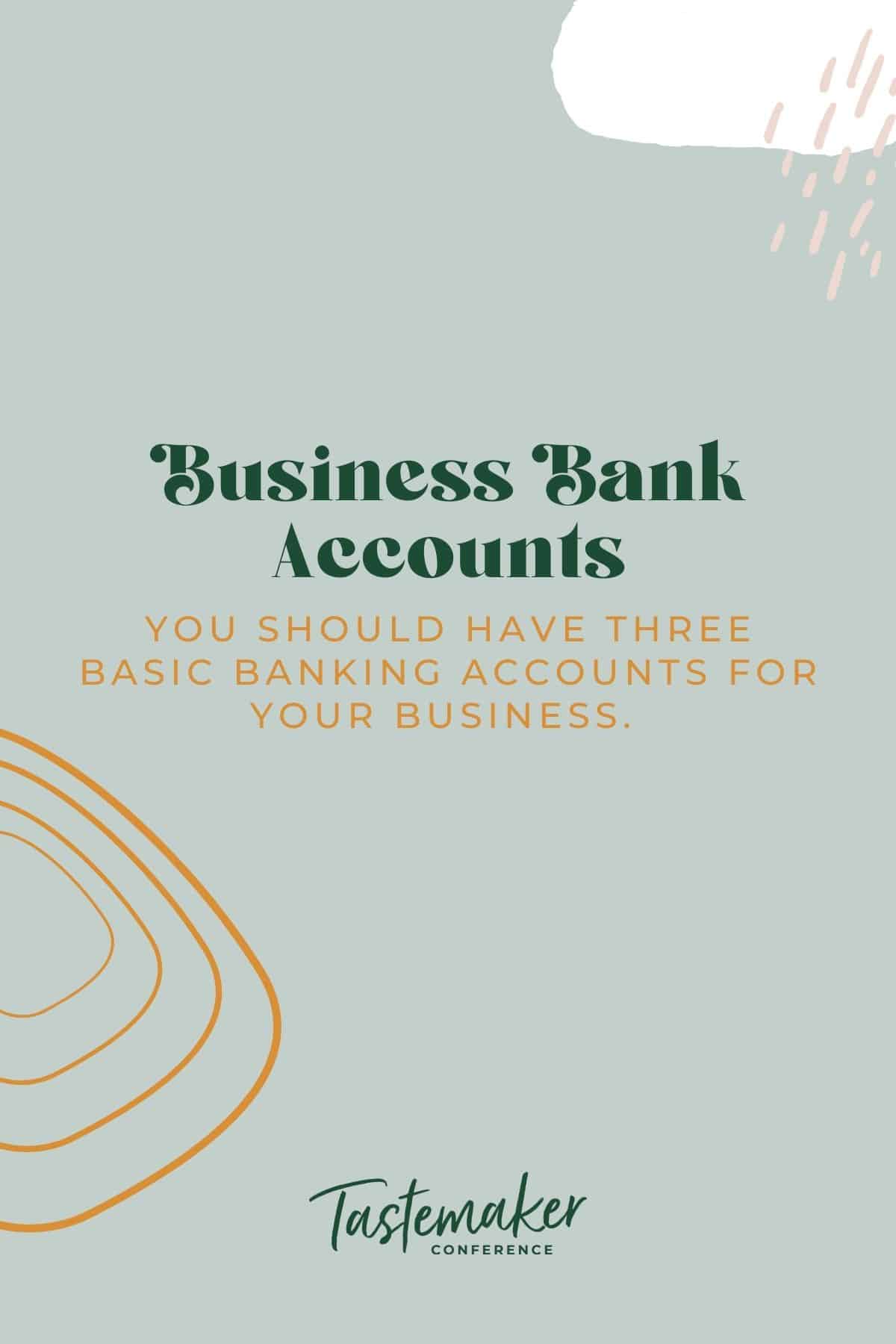
Business Bank Accounts
What types of bank accounts should I have as a small business owner?
You should have a few different types of accounts, all should be separate from your personal accounts.
- Checking Account for Operations – this is for expenses. Save about 1-3 months of expenses in this account.
- Savings Account for Taxes – save 30% of profits here. Use this to pay estimated and annual taxes to the IRS and State.
- Savings Account for Business – should have about 3-6 months of expenses in savings. This account comes last and will take a while to build up. This is super important for yourself, if you get sick, you need this business money in case something goes wrong. This is more of an emergency account.
Should I have a retirement account/plan as a small business owner?
Yes. This is something to look into after the bank accounts above are set into place. Get the short term accounts set up first. You need a cash flow buffer.
Then you can look into SEP-IRA, solo 401Ks, etc.
Do I pay myself? Where should I be putting money into?
All money should flow into your Checking Account for Operations. Then you can move money out and into saving accounts for the business or even into personal accounts when you “pay yourself” monthly, as you would an employee. All income should flow through there.
How do I pull money out of my business accounts to my personal account? What about owner withdrawals?
Try to avoid things like Venmo and CashApp. If you are paying yourself, you want to do something like ACH, PayPal, etc. You can take owner withdrawals as often as you want. That doesn’t help you prepare. So figure out something like “I can afford to give myself $1,000 per month”, then set up something like an automated payment monthly to pay yourself that amount. It’ll be more consistent. But if you need extra, then take that extra if you need it.
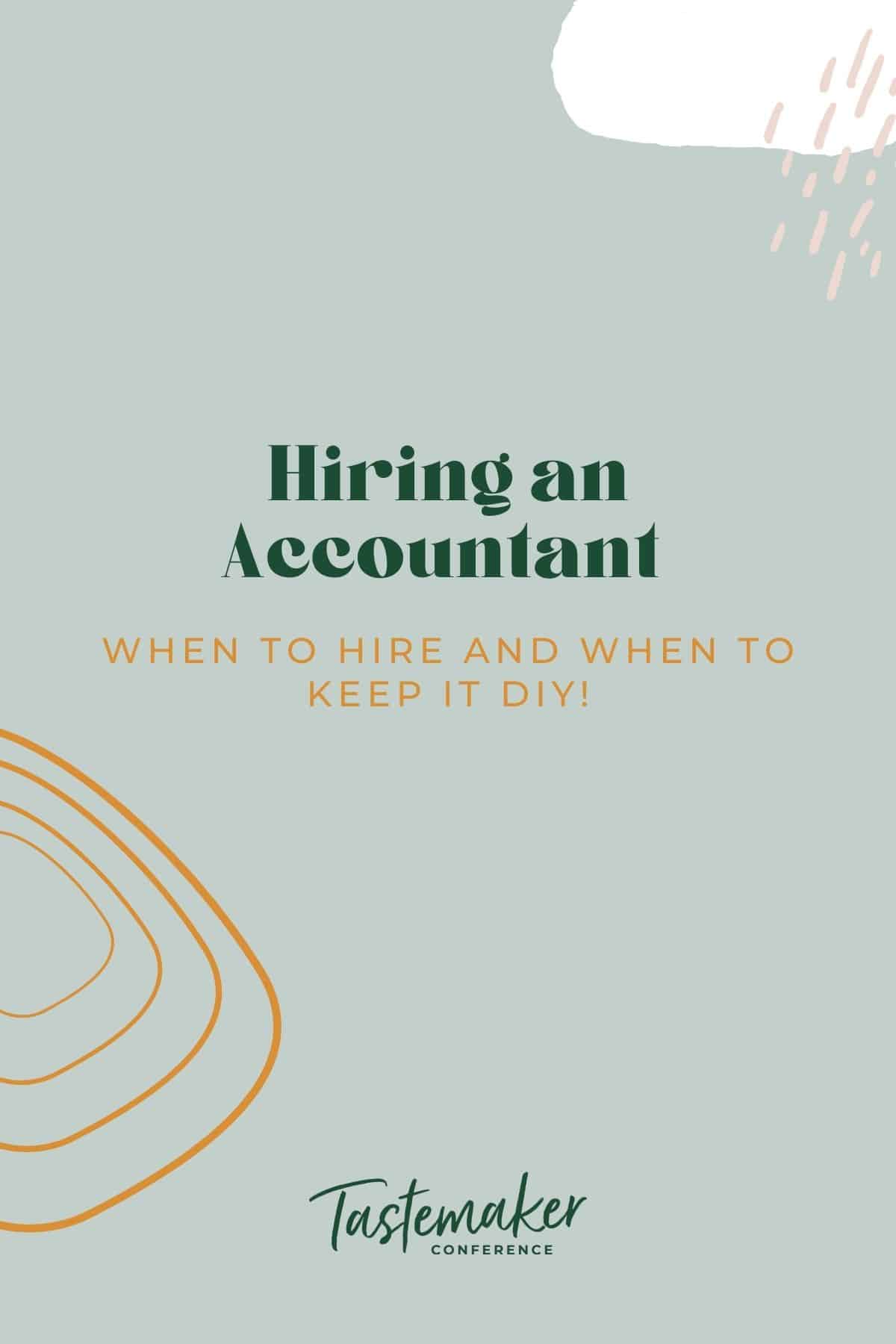
Hiring an Accountant
When should I stop doing DIY accounting and hire someone to take it over for me?
Do it as long as you feel confident in your abilities and like you have control over it. Save that money where it makes sense if you can.
Think about: tracking, compliance, advisory, and tasks. These go in order of smallest business to larger business needs.
- Tracking – tracking all your spending and income. If you can’t do this, you might need to hire a bookkeeper.
- Compliance – if you are good at tracking (or not), but are worried about taxes and messing those up, then you might need to bring on a tax preparer or advisor.
- Advisory – if you now have the first two underway with tracking and compliance, maybe you are confused by the income reports. That’s when you would hire an accounting firm to help you more to bring together all of it.
- Tasks – lastly, this is the step for a bigger business. You have a team, you have a lot going on and want someone else to take it over. You don’t want to touch any of it, so you hire a virtual CFO type person.
No matter what position you hire out, make sure you are hiring someone who gets your business. They understand content creation, blogging, etc. You need someone who works with other creators and understands the ins and outs of your expenses, payments, etc.
Here is a blog post specifically about this: https://www.littlefishaccounting.com/post/when-should-you-hire-a-tax-preparer-vs-diy
If I’m looking for an accountant to manage all of this, should I go to you?
It depends on the questions and needs. You can check out our services or check out the services and accountants at: https://www.accountantsofcolor.co/.
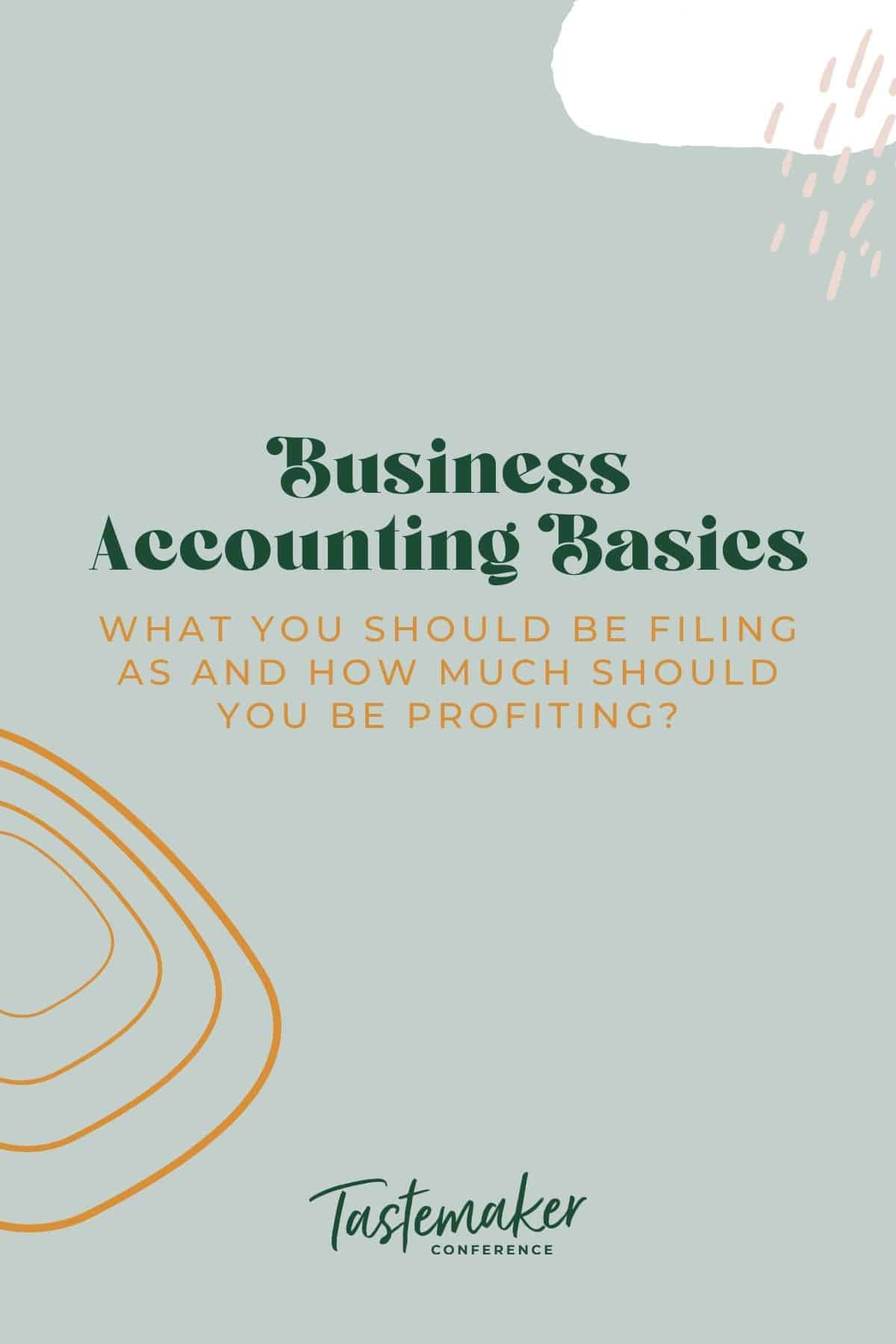
Business Accounting Basics
What apps and platforms should content creators be using for finances?
Quickbooks is what we recommend. It’s been around so long, links with other big platforms, and is well known by all accountants, which is good when you start working with an accountant and bookkeepers. FreshBooks and Wave are other cheaper alternatives.
In the end, you just need to use a platform that is intuitive for you – you can pull reports, do invoicing, track expenses, etc.
What is a healthy profit for a business to be making?
About 20-25%. At the beginning, most people are at about 10%. Try not to focus on the percentage, but more so is the goal. For example, if you know you need to be paying yourself more, your goal might be 50%.
Should I be a Sole Proprietor, LLC, SCorp, etc.?
Once you are earning $50-75,000 profits you want to think about S Corp. For those under that, you want to look at LLC or Sole Proprietorship. Once you have an S Corp, you have to start acting like a business in new ways. You yourself will be considered an employee. You’ll have to pay certain taxes, medical, etc. and probably work with more lawyers, HR folks, etc. You will need that extra money to take care of those fees.
What’s the best way to hire 1099 contractors to help with my business?
You need an independent contractor agreement with items like what you will pay them, when the contract is for, that they aren’t your employee/you don’t take out taxes, etc. And then you also need a W9 from them. 1 – this reminds them that they don’t get taxes removed and have to pay them themselves. 2 – this will help when you need to make them 1099s the next year and don’t have to chase them down for this later.
Pay people to the extent you can, the same way you did last time and timely. Using apps like Gusto can be super helpful. Other apps like https://www.track1099.com/ also work.
MISC.
Should influencers and bloggers have business insurance?
I don’t know the answers to that. However, it’s important to think about the risk. Do you have a lot of risk or smaller? Look into that. How much protection do you need if you were to get sued? Usually it’s not a huge expense and definitely something to look into.
If you have a mastermind you are running, do you count those as fees or are you a 1099 contractor for those attending?
If you are providing services to your clients, you are not a 1099. You are getting paid directly. If you have someone running those services for you, then pay them as a contractor or as an employee.
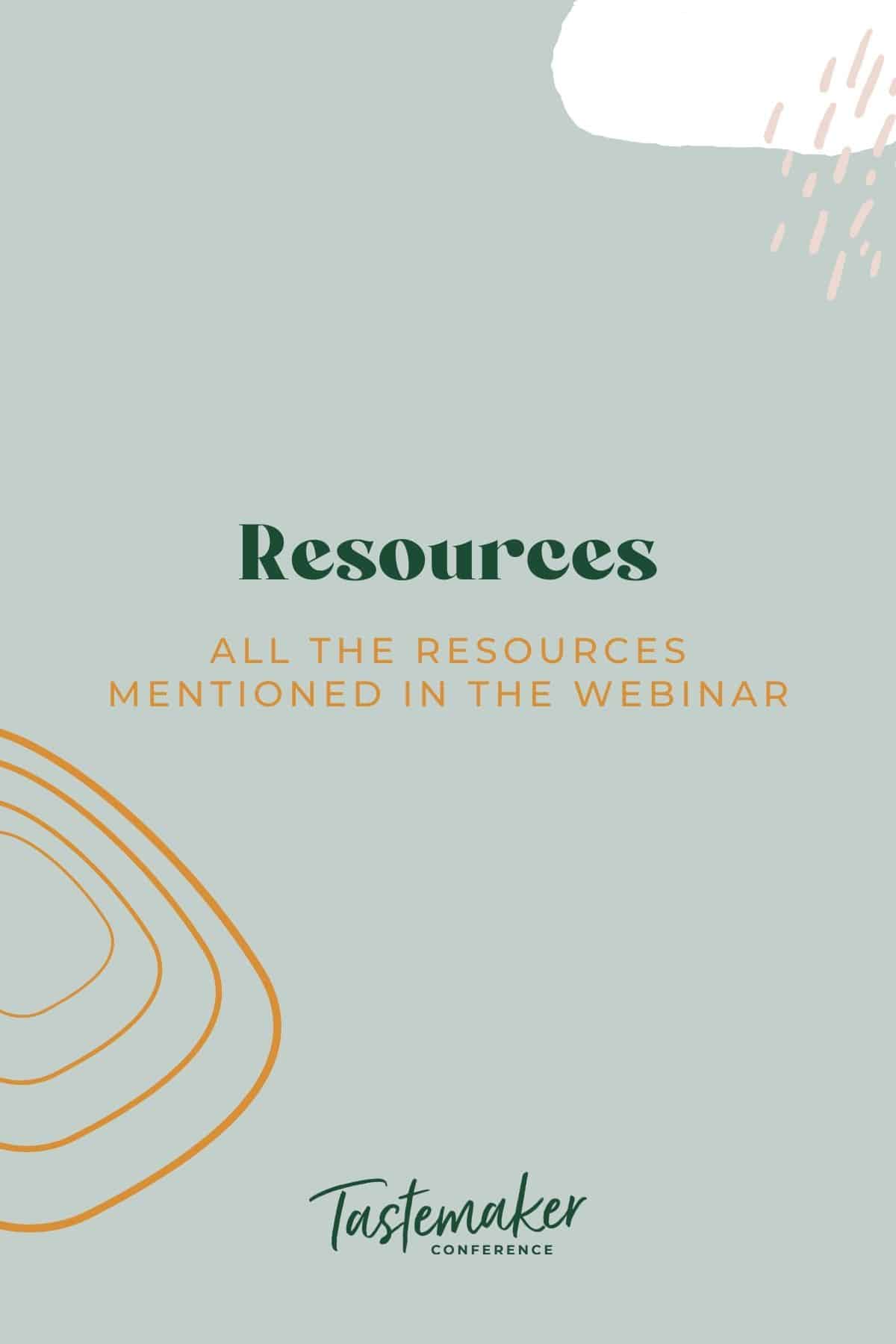
Resources
- https://www.littlefishaccounting.com/
- Information for IRS: https://www.irs.gov/businesses/small-businesses-self-employed/estimated-taxes
- Pay here: https://www.irs.gov/payments
- State Payments: each one varies. Type into Google “state tax estimated payments” + the name of your state.
- https://www.accountantsofcolor.co/
- https://gusto.com/
- https://www.track1099.com/
- https://www.littlefishaccounting.com/post/when-should-you-hire-a-tax-preparer-vs-diy
- https://www.littlefishaccounting.com/post/three-reasons-why-you-should-consider-an-llc-v-sole-proprietorship
Want to attend our next live webinar?
Join the Tastemaker Collaborative here! This is our free membership site where we host live events, have topic boards to discuss all the latest in the field, and connect with other creators.
